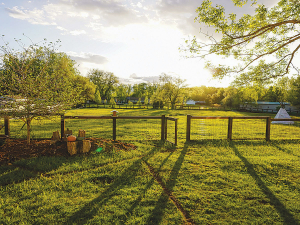DairyNZ opens applications for associate director role
DairyNZ is giving New Zealand farmers a unique opportunity to gain hands-on governance and leadership experience within the dairy sector.
 DairyNZ will explore shifts in technology uptake by farmers in the levy body’s five-yearly tech survey.
DairyNZ will explore shifts in technology uptake by farmers in the levy body’s five-yearly tech survey.
DairyNZ will explore shifts in technology uptake by farmers in the levy body’s five-yearly tech survey.
DairyNZ senior scientist Callum Eastwood says technology options for farmers have expanded rapidly over the years, and the survey looks to provide accurate insight into technology uptake nationally.
He says the survey will explore what technology has been adopted in the past five years and compare it with previous findings.
“In 2018, we forecast that the next study would show continued investment in commonly used automation technology, along with an increase in information technologies such as animal wearables,” says Eastwood.
“It will be interesting to see the comparison between the surveys and see what existing and new innovative farm technology have recently been adopted by farmers,” he says. “We will also be using this work to better understand the opportunities of technology uptake for our farmers.”
The DairyNZ project is led by Dr Callum Eastwood and Brian Dela Rue, and supported by delivery partner Cuthbert and Associates, who started conducting the survey from late February. It will involve 500 randomly selected dairy farmers nationwide, covering the topics of on-farm systems, technologies on-farm, workforce productivity and infrastructure.
Eastwood says the 2018 survey highlighted that rotary sheds were significantly more labour efficient, being generally newer, larger and having more technology incorporated.
“It also showed investment in information technologies such as milk meters, stock weighers and detection systems have historically been low, so we are keen to see if that has changed.
“We appreciate the support from farmers who participate in our survey and how it will help us further our understanding on current technology adoption and farm practices. For some, the thought of answering a survey at this time may be difficult, especially for those impacted by Cyclone Gabrielle.
“In our planning, we have taken that into account, and we are excluding farms in the Hawke’s Bay and East Coast for this reason. For other regions we are taking a phased approach, contacting farmers in the South Island first, and other cyclone-affected regions will be contacted towards the end of the survey period, later in March.”
Survey findings will be released in May, to share what practices are trending, the efficiencies they provide, and support other farmers to increase productivity and efficiency on-farm.
A new partnership between Dairy Women’s Network (DWN) and NZAgbiz aims to make evidence-based calf rearing practices accessible to all farm teams.
Despite some trying circumstances recently, the cherry season looks set to emerge on top of things.
Changed logos on shirts otherwise it will be business as usual when Fonterra’s consumer and related businesses are expected to change hands next month.
Reflecting on the past year, Horticulture New Zealand chief executive Kate Scott says there has been a lot to celebrate.
Ministry for Primary Industries (MPI) Director General Ray Smith is giving a big shout-out to the horticulture sector, especially kiwifruit.
Early forecasts for New Zealand's apples and pears point to a standout season marked by exceptional fruit quality and high pack-out rates.
OPINION: Fonterra may be on the verge of selling its consumer business in New Zealand, but the co-operative is not…
OPINION: What does the birth rate in China have to do with stock trading? Just ask a2 Milk Company.